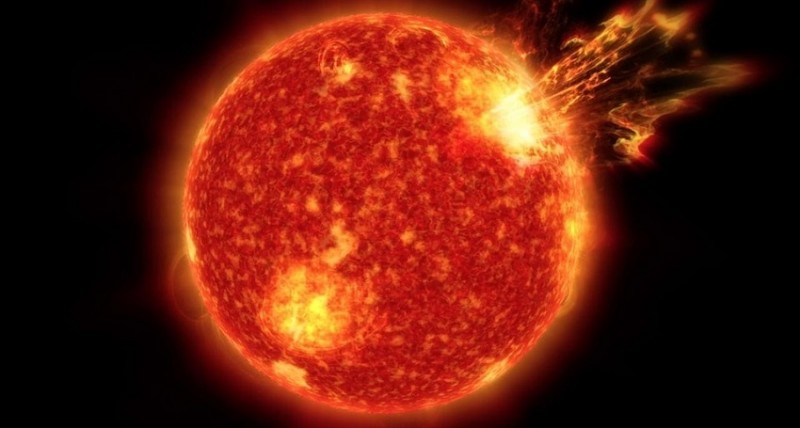
Florida recently experienced its most powerful solar flare in nearly two decades, marking a significant event in the sun's 11-year cycle. The X8.7-rated flare, caught on camera by NASA's Solar Dynamics Observatory, came hot on the heels of intense solar storms that dazzled the skies with unusual northern lights.
The National Oceanic and Atmospheric Administration (NOAA) played a crucial role in tracking this solar spectacle. Bryan Brasher, stationed at NOAA's Space Weather Prediction Center in Boulder, Colorado, emphasized the flare's intensity.
This flare, the most robust since 2005, is a highlight of the current solar cycle, nearing its peak. Fortunately, Earth seems to have dodged this cosmic bullet as the flare erupted on a sun-facing away side.
NOAA's update echoed relief that Earth was spared this time, but the sun's activity remains a subject of keen observation. The Solar Dynamics Observatory's footage captured the bright X-ray flash, suggesting a significant event in solar activity.
The recent string of solar flares and coronal mass ejections kept scientists on their toes, with concerns over potential disruptions to power and communication systems both on Earth and in space. Fortunately, the ejection associated with Tuesday's flare seemed to veer away from our planet, lessening the threat.
Despite the awe-inspiring display, NASA reported that its environmental satellite faced a minor hiccup, temporarily entering a protective hibernation mode due to the geomagnetic storm's effects. Meanwhile, the crew aboard the International Space Station took precautionary measures, seeking refuge in areas with robust radiation shielding, though they were never in imminent danger.
As scientists continue to monitor the sun's activity, the recent solar flare serves as a reminder of the sun's unpredictable nature and the importance of preparedness for potential space weather events.
Putin's Visit to Xi Jinping Amid US-China Trade Tensions: Biden's Tariffs and Political Backlash
Germany Considers Reinstating Military Draft Amid Rising Tensions with Russia
Putin Nominates Mishustin for Prime Minister Again: What This Means for Russia